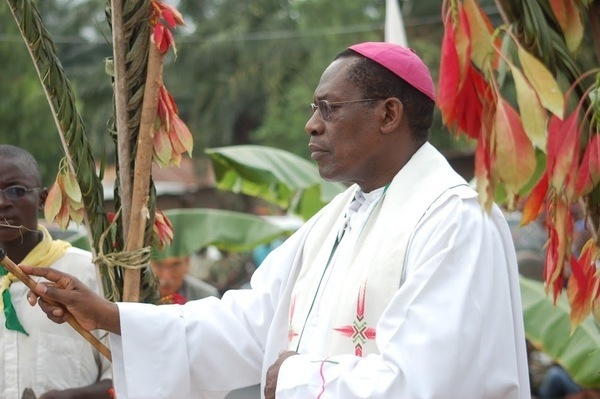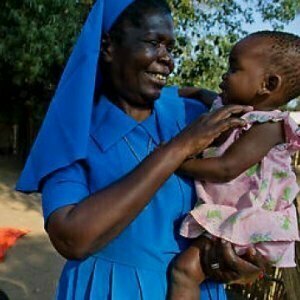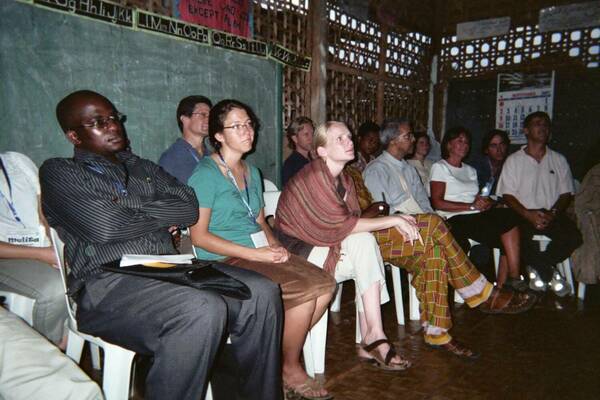Vision and Mission

The Catholic community has distinct assets that it brings to peacebuilding:
People Power: The Catholic community is comprised of over one billion people worldwide. This gives the Church enormous reach across geographies and levels of society. It has a broad and deep well of lived peacebuilding experience to share, and a large number of individuals to mobilize as artisans of peace.
Institutional Capacity: The Catholic Church frequently has structural presence that is unparalleled in areas of conflict. Church leaders are often figures of trust for actors on all sides of conflict, allowing those Church leaders to accompany leaders of conflicting groups and help facilitate efforts at mediation and reconciliation. Furthermore, its institutional nature allows the Church to integrate horizontal efforts for peace at the grassroots with vertical dimensions of social and governmental power, an integration necessary for stable peace. Additionally, local Church structures are indigenous institutions, giving them a stronger level of investment and commitment than other groups.
Catholic Social Teaching: The volume and extent of Catholic reflection on social justice and ethics, Catholic Social Teaching, offers a wealth of resources for thinking about and mobilizing peacebuilding. The Catholic Church’s systematic and developed body of literature on concepts such as the dignity of the human person, solidarity, the common good, subsidiarity, and the preferential option for the poor and vulnerable provide an effective vocabulary for peacebuilding work and give rise to a duty to commit to peace.
Ritual and Sacramental Practices: The Catholic emphasis on ritual and sacrament can invoke a depth in peacebuilding efforts that is crucial to allowing real transformation to occur socially and within individuals. Catholic rituals can provide a space in which conflicting sides can meet to pursue reconciliation and transformation and in which community can be reconciled and restored. By modeling such reconciliation and restoration, this distinctive style of religious practice can provide hope for realizing such change and empower individuals along the way toward that realization.

CPN complements these distinctive assets by responding to four needs:
Deepening Solidarity: The Church's artisans of peace often feel isolated. CPN connects peacebuilders from around the world in order to deepen relationships of solidarity.
Sharing Best Practices: The Church's work for peace is not well known or understood. CPN stimulates a more systematic sharing, mapping, and analysis of the best practices of Catholic peacebuilding.
Building Capacity: Catholic peacebuilders too often lack skills and resources. CPN links peacebuilders with those who can provide training, strategic planning, or other resources necessary for effective peacebuilding.
Developing a Theology of Peacebuilding: Many have called for a theology of
peacebuilding that is comparable in sophistication to the Church's teaching on war.
CPN stimulates further reflection on peacebuilding as a conceptually coherent,
theologically accurate, spiritually enlivening, and practically effective contribution
to the Church's broader teaching on justice and peace.

CPN accomplishes this response through four main means:
Convenings: CPN convenes major international gatherings of scholars, Church leaders, and practitioners, as well as regional meetings of peacebuilders in areas where its has partnerships.
Clearinghouse: Through its website and other communications, CPN is a clearinghouse for information on Catholic peacebuilding activities, resources, and research.
Research: CPN stimulates scholarly research and publishing. In addition to papers from its conferences, CPN has completed a major research project culminating in a
groud-breaking volume, Peacebuilding: Catholic Theology, Ethics, and Praxis (2010).
Current research foci include mining and conflict and nuclear disarmament.
Training and Support: CPN is not a funding organization, but it assists in accessing
needed resources and offers training and strategic planning programs for Church
leaders and peacebuilding specialists.